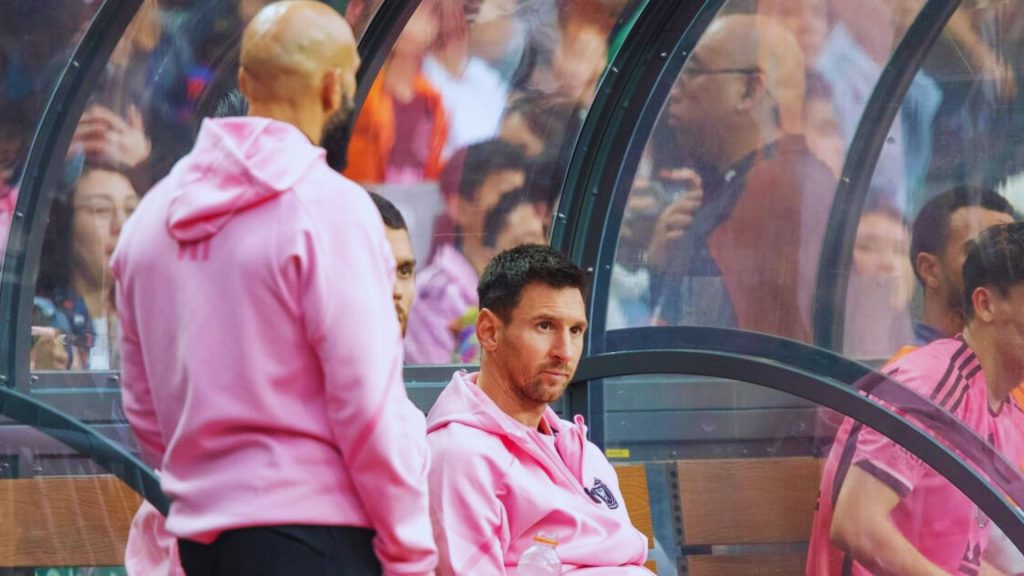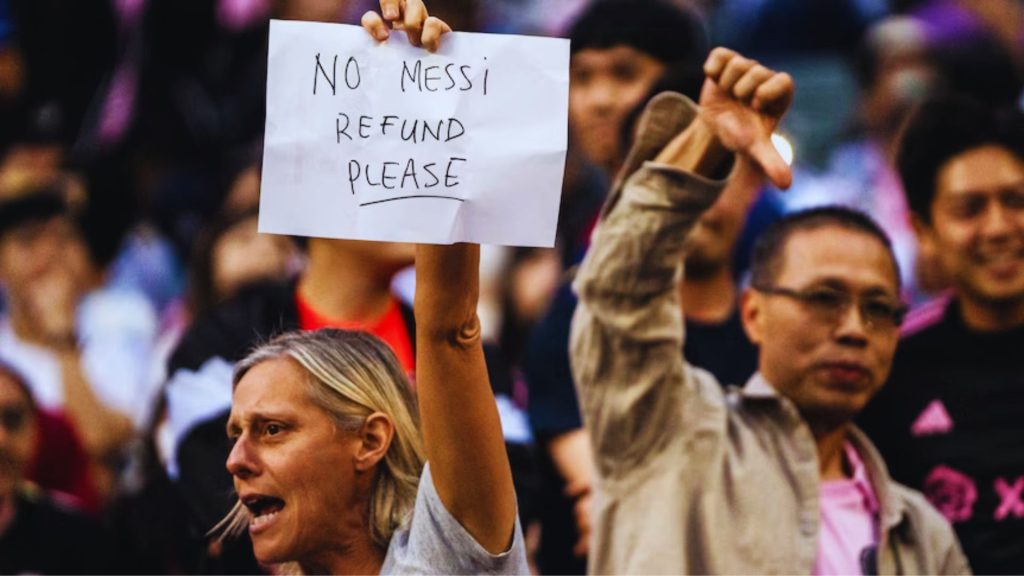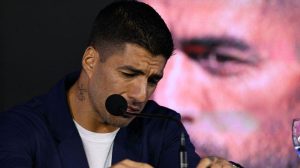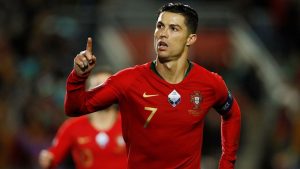
Inter Miami encountered a wave of discontent from Hong Kong fans during a pre-season friendly when Lionel Messi, the Argentine World Cup winner, remained on the bench due to a hamstring injury. The match, in which Inter defeated a local League XI 4-1, drew almost 40,000 fans, but the absence of Messi led to chants of “refund” and a chorus of boos that even drowned out a speech by Inter co-owner David Beckham.
Despite the disappointment among fans, the Hong Kong government expressed its displeasure and hinted at potential repercussions for the match organizers, Tatler Asia. The government’s major sports events committee (MSEC) stated that they may reduce funding, emphasizing the need for an explanation regarding Messi’s non-participation.
“The MSEC will take follow-up actions with the organizer according to the terms and conditions, which includes reducing the amount of funding as a result of Messi not playing the match,” the committee stated.

The MSEC had granted 15 million Hong Kong dollars (£1.5 million) for the event, with an additional one million Hong Kong dollars for the venue. The frustration among the near-capacity crowd, each paying over 1,000 Hong Kong dollars (£101) for a ticket, escalated during the match, especially in the second half when chants of “we want Messi” echoed through Hong Kong Stadium.
Inter Miami’s co-owner, David Beckham, faced jeers when attempting to express gratitude to the supporters after the game. In response to the backlash, Tatler Asia released a statement clarifying that they had no prior information about Messi and Suarez’s non-participation and emphasized that the players were deemed unfit by the team’s medical department.
Inter Miami’s manager, Gerardo Martino, also addressed the disappointment, stating, “We understand the fans’ disappointment in the absence of Messi and Suarez, and we apologize for that, but this was a decision made with our medical staff. If there was a way they could have played even a little while, we would have done it, but there was too much risk involved.”
The incident in Hong Kong underscores the challenges faced by football clubs in managing fan expectations, especially when star players are unable to participate due to injuries.




